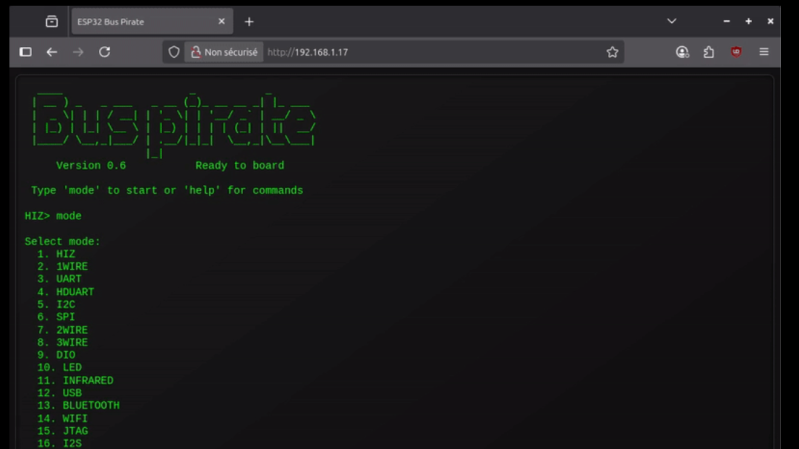Bus Pirate is nearly a household name in the hardware hacking world. The first version came out way back in 2008, and there have been several revisions since then. You can buy pre-built Bus Pirate devices, but there’s also the option now to build our own. The ESP32 Bus Pirate project has everything you need to turn an ESP32 device into a protocol sniffing/decoding powerhouse—all on a board you may have sitting around from another project.
There are a ton of solutions when it comes to talking to different buses —I2C, UART, JTAG, you name it, there’s a purpose-built device for it. Over a decade ago, Dangerous Prototypes released the Bus Pirate, offering a Swiss Army knife of a tool to interface with this ever-expanding list of communications standards. The ESP32 Bus Pirate project is open-source firmware for ESP32s that gives them the ability to be the multi-tool that lets us communicate with a long list of protocols.
It supports a wide variety of devices, from the straightforward ESP32 S3 Dev Kit available from a long list of suppliers to the more specialized M5 Cardputer equipped with its own keyboard. The original Bus Pirate required plugging the board into a PC to use it; with this being ESP32-based, that’s no longer a limitation. So long as you can supply power to the ESP32, you can connect and control it via WiFi and a web browser. In addition to the Bus Pirate protocols, the project allows us to directly control the pins on the ESP32 board, should you want to do more with it besides interfacing with one of the supported protocols. Be sure to check out some of our other articles about Bus Pirate, as it’s been a fantastic tool for the hacker community over the years.
















Except it’s not a bus pirate.
I couldn’t understand what was discussed in the article and am a software developer with 20 years experienc
I have the ESP32 with a few other tools including a flipper zero and jtagulator and more high end stuff for data recovery when a function on a chip fails for my customers. Ill get a new chip and flash data over and test things out that everything was recovered. If you are a hardware “hacker” like me that helps people then you will always have business as few of us exist. Others are tied by the industry they work for and sign a disclosure agreement that they cant use the tools outside of the business as its trade secret risk. Legal binding disclosures. Im not tied to any contract nor do I give any trade secrets or information outside of the customer or business for privacy reasons. You have to be a moral hacker and hold high standards to see certain things
Very interresting, but not suitable for all ESP32…
This is a great little project, I am surprised it is not getting more love on here. It works well, you can buy an ESP32 DevkitC clone from Amazon for under £10, flash it using their web-flasher tool (nothing to download or fettle with) and right away you can access it via USB terminal or over your phone. The WIFI/Phone terminal works really well – no PC needed.
I hooked it up and tested some analogue measurements, digital IO and even pushed sound out to a DAC via I2S.
Great little device, I hope more people find it, this is really helpful little thing.
Sure you could do similar with an Arduino (especially the ESP based variants) but having something dedicated with a standard purpose makes it a tool, especially if fitted in a nice box with connectors.